Being Fed by the New Moses: Reflections on Lent Week IV
Borderland Nathan
Exodus 3:1-151)RSV-CE
Now Moses was keeping the flock of his father-in-law, Jethro, the priest of Mid′ian; and he led his flock to the west side of the wilderness, and came to Horeb, the mountain of God. 2 And the angel of the Lord appeared to him in a flame of fire out of the midst of a bush; and he looked, and lo, the bush was burning, yet it was not consumed. 3 And Moses said, “I will turn aside and see this great sight, why the bush is not burnt.” 4 When the Lord saw that he turned aside to see, God called to him out of the bush, “Moses, Moses!” And he said, “Here am I.” 5 Then he said, “Do not come near; put off your shoes from your feet, for the place on which you are standing is holy ground.” 6 And he said, “I am the God of your father, the God of Abraham, the God of Isaac, and the God of Jacob.” And Moses hid his face, for he was afraid to look at God.
7 Then the Lord said, “I have seen the affliction of my people who are in Egypt, and have heard their cry because of their taskmasters; I know their sufferings, 8 and I have come down to deliver them out of the hand of the Egyptians, and to bring them up out of that land to a good and broad land, a land flowing with milk and honey, to the place of the Canaanites, the Hittites, the Amorites, the Per′izzites, the Hivites, and the Jeb′usites. 9 And now, behold, the cry of the people of Israel has come to me, and I have seen the oppression with which the Egyptians oppress them. 10 Come, I will send you to Pharaoh that you may bring forth my people, the sons of Israel, out of Egypt.” 11 But Moses said to God, “Who am I that I should go to Pharaoh, and bring the sons of Israel out of Egypt?” 12 He said, “But I will be with you; and this shall be the sign for you, that I have sent you: when you have brought forth the people out of Egypt, you shall serve God upon this mountain.”
13 Then Moses said to God, “If I come to the people of Israel and say to them, ‘The God of your fathers has sent me to you,’ and they ask me, ‘What is his name?’ what shall I say to them?” 14 God said to Moses, “I am who I am.” And he said, “Say this to the people of Israel, ‘I am has sent me to you.’” 15 God also said to Moses, “Say this to the people of Israel, ‘The Lord, the God of your fathers, the God of Abraham, the God of Isaac, and the God of Jacob, has sent me to you’: this is my name for ever, and thus I am to be remembered throughout all generations.
The Old Testament readings for today make clear that Jesus is to be viewed as the new Moses, and so we will look at the Gospel passage with this fact in mind.
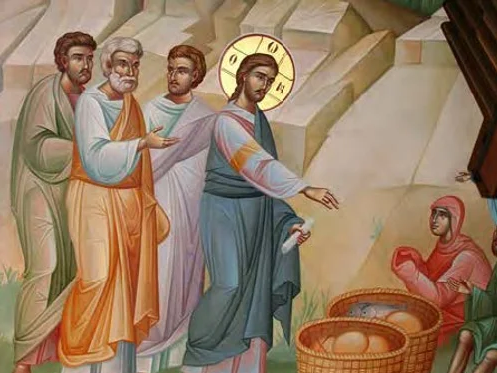
John 6:1-15
After this Jesus went to the other side of the Sea of Galilee, which is the Sea of Tibe′ri-as. 2 And a multitude followed him, because they saw the signs which he did on those who were diseased. 3 Jesus went up into the hills, and there sat down with his disciples. 4 Now the Passover, the feast of the Jews, was at hand. 5 Lifting up his eyes, then, and seeing that a multitude was coming to him, Jesus said to Philip, “How are we to buy bread, so that these people may eat?” 6 This he said to test him, for he himself knew what he would do. 7 Philip answered him, “Two hundred denarii[a] would not buy enough bread for each of them to get a little.” 8 One of his disciples, Andrew, Simon Peter’s brother, said to him, 9 “There is a lad here who has five barley loaves and two fish; but what are they among so many?”
10 Jesus said, “Make the people sit down.” Now there was much grass in the place; so the men sat down, in number about five thousand. 11 Jesus then took the loaves, and when he had given thanks, he distributed them to those who were seated; so also the fish, as much as they wanted. 12 And when they had eaten their fill, he told his disciples, “Gather up the fragments left over, that nothing may be lost.” 13 So they gathered them up and filled twelve baskets with fragments from the five barley loaves, left by those who had eaten. 14 When the people saw the sign which he had done, they said, “This is indeed the prophet who is to come into the world!” 15 Perceiving then that they were about to come and take him by force to make him king, Jesus withdrew again to the hills by himself.
John is unique in that he refers to Jesus’s miracles as “signs,” because every detail had a deeper meaning. We note that Jesus is going to the mountains (v. 3), it is around Passover time (v. 4), and he is about to feed them supernatural bread. An astute first-century Jewish reader would have seen that Jesus was being referred to as a new Moses; the same prophet like Moses that had been promised even back to Moses himself.
Deuteronomy 18:15-19
15 “The Lord your God will raise up for you a prophet like me from among you, from your brethren—him you shall heed— 16 just as you desired of the Lord your God at Horeb on the day of the assembly, when you said, ‘Let me not hear again the voice of the Lord my God, or see this great fire any more, lest I die.’ 17 And the Lord said to me, ‘They have rightly said all that they have spoken. 18 I will raise up for them a prophet like you from among their brethren; and I will put my words in his mouth, and he shall speak to them all that I command him. 19 And whoever will not give heed to my words which he shall speak in my name, I myself will require it of him.
Further, during this time Israel was largely scattered across the diaspora, with only two of the tribes remaining around Jerusalem. There was an expectation that during the new Exodus, God himself would shepherd his scattered flock. We can see this in the following passage from Ezekiel, and note the portions in bold.
Isaiah 34:11-16
11 “For thus says the Lord God: Behold, I, I myself will search for my sheep, and will seek them out. 12 As a shepherd seeks out his flock when some of his sheep have been scattered abroad, so will I seek out my sheep; and I will rescue them from all places where they have been scattered on a day of clouds and thick darkness. 13 And I will bring them out from the peoples, and gather them from the countries, and will bring them into their own land; and I will feed them on the mountains of Israel, by the fountains, and in all the inhabited places of the country. 14 I will feed them with good pasture, and upon the mountain heights of Israel shall be their pasture; there they shall lie down in good grazing land, and on fat pasture they shall feed on the mountains of Israel. 15 I myself will be the shepherd of my sheep, and I will make them lie down, says the Lord God. 16 I will seek the lost, and I will bring back the strayed, and I will bind up the crippled, and I will strengthen the weak, and the fat and the strong I will watch over; I will feed them in justice.
The Gospel of John is known for providing small little eye witness details that the other Gospels do not. We see that there was much grass all around at this time of year, and he has the disciples make the people sit down, or literally to recline (v. 10). John also mentions the unique phrase of gathering up the fragments “that nothing may be lost” (v. 10). The beauty of the Old Testament reading from the burning bush is that Jesus is fulfilling two prophecies at once: on the one hand he is the new prophet like Moses, and on the other he is leading people as the very God that spoke from the burning bush; the shepherd God spoken of by Ezekiel. This shepherd imagery becomes stronger when you look at the small detail of the same event in Mark 6:39 where he notes green grass, and compare it to Psalm 23:1-2, where the Lord is the shepherd that “makes me lie down in green pastures.”
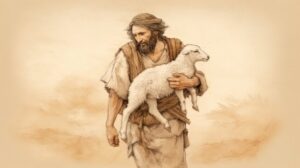
Mark 6:40 also shows Jesus grouping the men in the same way that Moses grouped men in Exodus 18:25, by hundreds and by fifties.2)Roger David Aus, Feeding the Five Thousand: Studies in the Judaic Background of Mark 6:30-44 Par. and John 6:1-15 (Lanham, MD: University Press of America, 2010), 88. The twelve baskets correspond to the twelve tribes of Israel, and so the new Moses, God himself, will feed the restored Israel with supernatural manna. As a parting note, the Church fathers saw the five loaves and two fish in the story as referring to the five books of Moses; the Law, and the two fish representing the more sustaining Scriptures of the fishers of men; Christians.
Saint Cyril of Alexandria, 376 AD – 444 AD
“The five barley loaves signify the five books of Moses, that is, the whole law which gives as it were a coarser type of food. . . . But the fish signify good food attained through the fishermen, that is, the more delicate books of Christ’s disciples. Within the latter, there are two distinct types, the preaching of the apostles and the proclamation of the evangelists, which shine forth among us.”3)Cyril of Alexandria, Commentary on John, Volume 1, ed. Joel C. Elowsky, trans. David R. Maxwell, Ancient Christian Texts (Downers Grove, IL: InterVarsity Press, 2013), 212.
And this leads us to our final related passage for the readings.
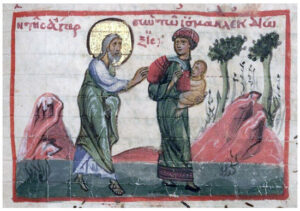
“Bye, thanks for the sex.” Not one of Abraham’s better moments.
Galatians 4: 22-31
22 For it is written that Abraham had two sons, one by a slave and one by a free woman. 23 But the son of the slave was born according to the flesh, the son of the free woman through promise. 24 Now this is an allegory: these women are two covenants. One is from Mount Sinai, bearing children for slavery; she is Hagar. 25 Now Hagar is Mount Sinai in Arabia; she corresponds to the present Jerusalem, for she is in slavery with her children. 26 But the Jerusalem above is free, and she is our mother. 27 For it is written,
“Rejoice, O barren one that dost not bear;
break forth and shout, thou who art not in travail;
for the desolate hath more children
than she who hath a husband.”
28 Now we, brethren, like Isaac, are children of promise. 29 But as at that time he who was born according to the flesh persecuted him who was born according to the Spirit, so it is now. 30 But what does the scripture say? “Cast out the slave and her son; for the son of the slave shall not inherit with the son of the free woman.” 31 So, brethren, we are not children of the slave but of the free woman.
Saint Paul uses an allegorical interpretation of Scripture, in which he refers to the two women that bore children to Abraham: Sarah and Hagar. Sarah bears the child of promise because she was of old age and believed to be barren; by all rights a natural or “fleshly” birth should have come through Hagar. In this passage Saint Paul is comparing the Christians to the children of promise, the true fulfillment of the seed of Abraham, and the Jews as being according to the flesh. This natural, fleshly state is a form of slavery, since elsewhere Saint Paul makes clear that they are slaves to the Law. Nobody can keep the Law perfectly, and so rather than guide us to God it serves as a condemnation of our mistakes. The fathers point out that Hagar and the Law represent the Jews and the earthly Jerusalem, which is why Saint Paul states that the children of promise, and the implied Sarah, are linked to the heavenly Jerusalem.4)Theodore of Mopsuestia, The Commentaries on the Minor Epistles of Paul, trans. Rowan A. Greer, Writings from the Greco-Roman World 26 (Atlanta: Society of Biblical Literature, 2010), 123-127.
And so, when Saint Paul cites the Scripture in verse 27, he links Sarah with being the desolate one, and we will be more numerous as children of the promise than Hagar, because we will conquer death through the resurrection.
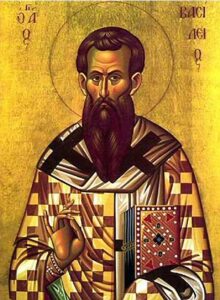
Saint Theodore of Mopsuestia, 350 AD – 428 AD
“He did not cite this verse as though it were spoken prophetically of the resurrection, but he employed the testimony because of the word barren, since he takes Sarah as the barren woman in the rank of the second testament. What he means is that “all that will be beyond hope. For we who have died will rise again so that we shall be found more numerous than those others. For we who come together in this testament shall be much more numerous. Those, however, who are in the testament under the law are a single nation. But we who hold fast to our attainment of the testament of the resurrection shall all be sons.” This is why he adds: 4:28 Now we, brothers, are sons of the promise, like Isaac.”5)Ibid, 127.
Liturgical Meaning
In our Lenten journey, rather than being like the Israelites grumbling in the desert, we must rely on Jesus to feed us. This is meant quite literally, especially if you are following a traditional Lenten fast. We fast so that our thoughts rise to higher things, and God feeds us and sustains us through our prayer lives and the supernatural manna of salvation; the Eucharist. Let the ways of slavery and the flesh go, and place your trust in the shepherd, as we rely on our supernatural food to allow us to conquer death and become the more numerous children of the promise.
References
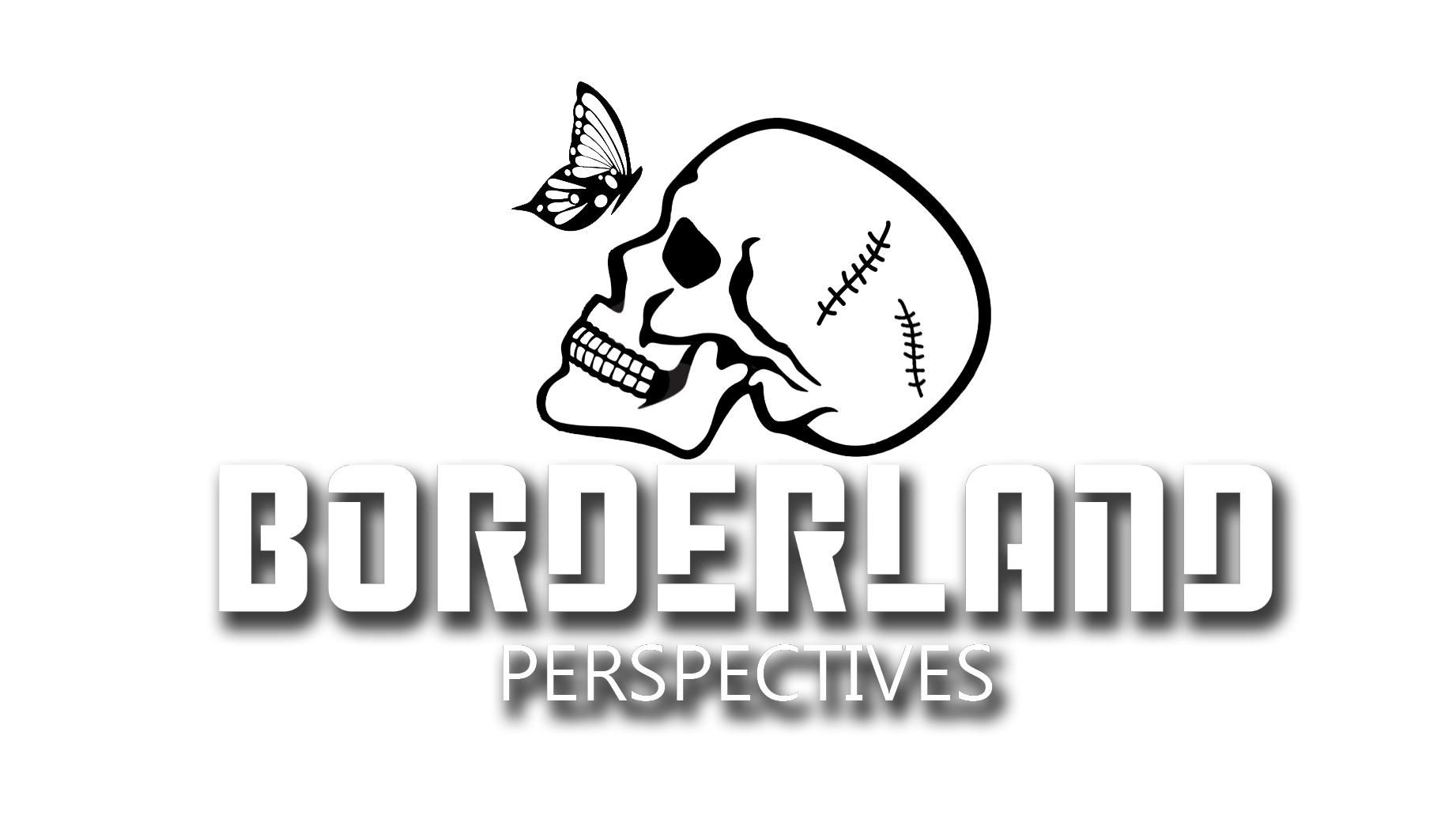
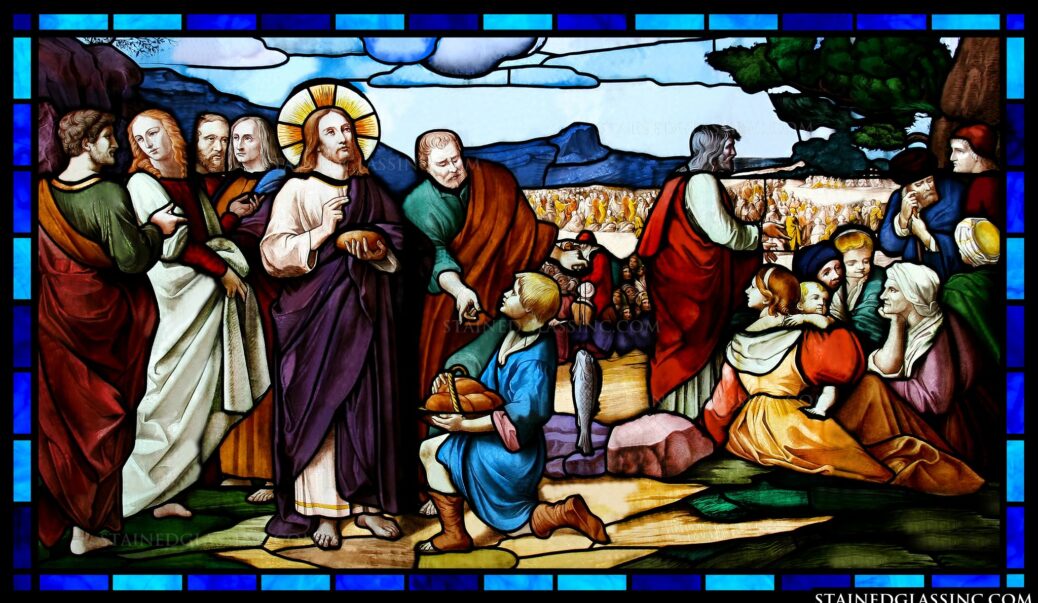
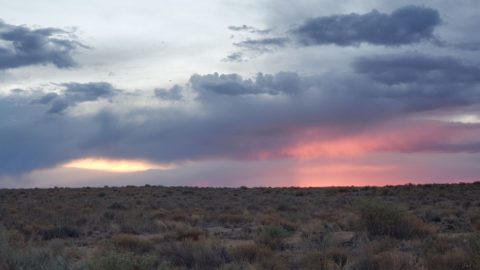

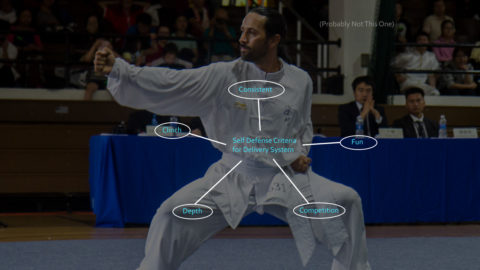
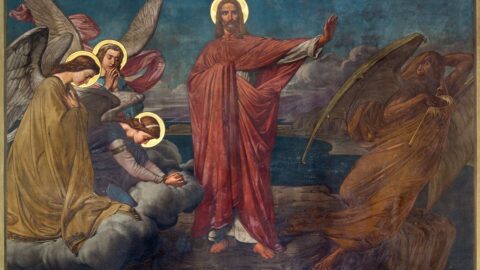


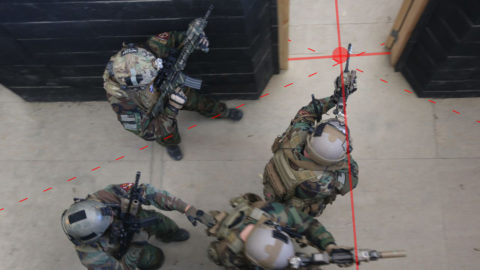
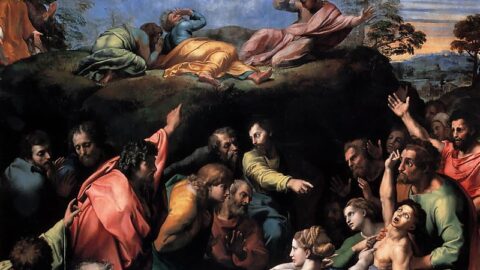
 Rob Brotzman
Rob Brotzman  Nathan Wagar
Nathan Wagar